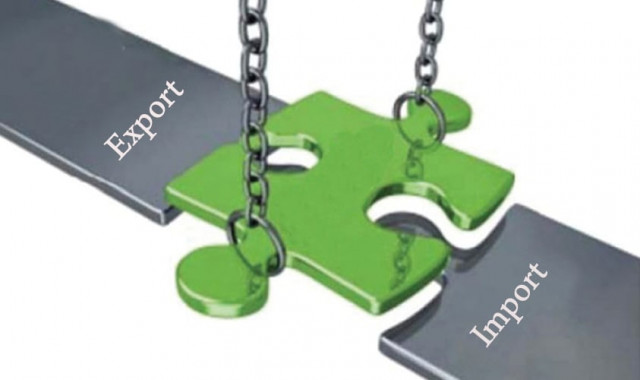Widening trade deficit
For the first nine months of fiscal year 2015, the deficit has widened by over 15 per cent

Pakistan’s exports are declining because, for too long, the government has subsidised industries that have grown too reliant on public support and as a result are globally uncompetitive. STOCK IMAGE
A breakdown of the trade numbers reveals evidence for this hypothesis: the value-added textile sector has actually seen its exports rise during the first nine months of fiscal 2015, compared with the same period in the previous year. The decline is due to a sharp fall-off in exports of more basic textile products like raw cotton. In other words, if our textile industry had developed beyond the very bottom of the value chain, the trade deficit would have actually decreased. The government proclaims that it is a proponent of economic liberalism. In theory, that means that it believes that it is not the government’s job to pick winners and losers in the economy: instead, its job is simply to create a level playing field for all sorts of businesses to compete in the marketplace. For several decades, however, the government has given in to pressure from the loudest lobbies, promoting industries that did not develop competitive business models. That policy may sound appealing, but it ultimately does more damage to the economy than good. It is time to revise these short-term policies towards more long-term measures. That is the only way to ensure sustainable growth.
Published in The Express Tribune, April 29th, 2015.
Like Opinion & Editorial on Facebook, follow @ETOpEd on Twitter to receive all updates on all our daily pieces.



















COMMENTS
Comments are moderated and generally will be posted if they are on-topic and not abusive.
For more information, please see our Comments FAQ